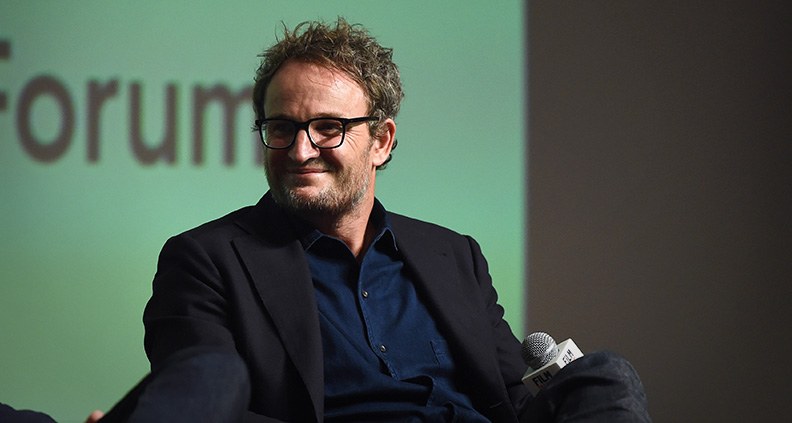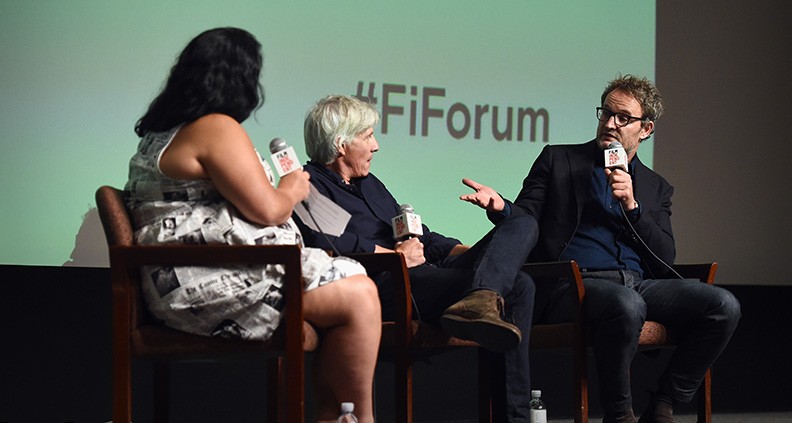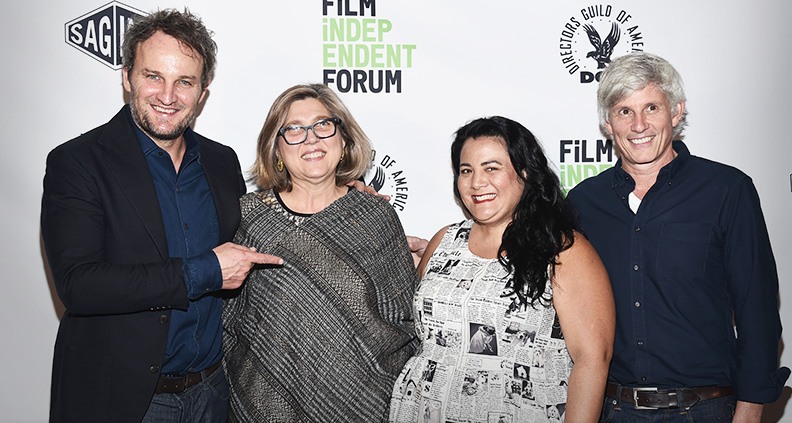‘Chappaquiddick’ Opens Forum with a Portrait of Paradox
Imagine you’re mourning the loss of the last of your three brothers, juggling career and family expectations, all the while considering a run for President of the United States. And then, one night, you run your car off a bridge with someone else stuck inside.
Such was the scenario presented by John Curran’s Chappaquiddick at Opening Night of the 2017 Film Independent Forum. In 107 minutes, the film deftly covers a week’s worth of emotional turmoil, crises of faith, philosophizing and legal wrangling in the life of Ted Kennedy—played in the film by Australian actor Jason Clarke.
Even 48 years later, the story of the “Chappaquiddick Incident” is not an easy one to tell. Curran’s pensive, deliberate narrative sets up a portrait of young senator struggling with the weight of expectations on all sides, as various friends and advisors urge conflicting courses of action following the accidental drowning death of former Robert Kennedy campaign secretary Mary Jo Kopechne (Kate Mara). Viewers are left wondering what they would do in the same situation.

“I have no idea what happened that night, and I’ve done a lot of research,” Curran (We Don’t Live Here Anymore, The Killer Inside Me) stated in the post-screening Q&A moderated by Variety’s Janelle Riley. “It was not my idea to set out to blow the lid off the truth. I got the script and it’s an amazing script—a portrait of a paradox.”
Clarke knows he’s not the first person one would think of to cast as Ted Kennedy. “Of course you wonder if you can pull it off. You always wonder that as an actor. Especially someone so well known, with family still living. I felt a real weight to tell this story. But I had a very strong feeling after I read it. I said to my wife, ‘I have read something extraordinary.’”
Curran and Clarke met early in Clarke’s acting career, and when Clarke’s manager sent Curran the Chappaquiddick script, he was eager to take on the project. In the process of developing the script (written by Taylor Allen and Andrew Logan) Curran had questions, assuming some story points had been made up. But he found that even the most bizarre plot elements came directly from the 1969 inquest documentation.

“I had a lot of preconceived ideas about the Kennedys,” says Curran, who was nine years old when the circumstances in the film took place, living in the town next to Mary Jo Kopechne’s parents. “They’re our version of the royal family—charismatic. Maybe that’s a necessary facet of politicians.”
“I learned an immense amount from this film,” said Clarke. “When you go down the rabbit hole, Joe Kennedy’s footprint is a massive footprint on America and the world and the 20th century—and Ted is a large part of that.”
Joe Kennedy is played by nearly-silent-yet-all-the-more-imposing Bruce Dern. Curran needed someone who could pull off the role of the palsied, elderly Joe but was told no older person would want to play someone in a wheelchair with only five lines in the whole movie. But Dern embraced the role, telling his manager: “I’m going to play it with my eyes.” “He’s an acting animal,” said Clarke. “It’s like blood in the water, he wants to be there.”
Ed Helms and Jim Gaffigan play Kennedy’s cousin Joe Gargan and friend Paul Markham, respectively. Both known for comedy, Curran cast the actors against type in highly dramatic roles, stating that the film is a tragedy that turns into a farce. “Comedians are tortured, complex and sad,” Curran reasoned with a wry smile. Good friends in real life, Helms and Gaffigan got along well on-screen with a chemistry that reflected their off-screen friendship.

Clarke likened the rigorous task of becoming Kennedy to going to the gym and doing drills, dedicating dozens of hours to learning how to look and sound like Ted. Finding the Kennedy tone and avoiding caricature was important—as was mastering the smile. “Ted has a very particular smile,” Curran pointed out. Which meant a variety of fake teeth for Clarke, and it took a lot of time to find the right width and depth that would transform Clarke’s smile without butchering his tongue in the course of a 15-hour day.
One budget choice Curran made was to shoot the film in Martha’s Vineyard instead of Toronto. “There are good incentives in Toronto, but Toronto doesn’t look anything like Martha’s Vineyard. I didn’t want a bunch of extras in Toronto doing fake Boston accents.” Cramming 40 days of shooting into 32 was the only way to appease budget constraints. But it put pressure on everyone to get the scenes.
For Clarke, “There was one very tough day during the telephone scene [in which Kennedy tells Kopechne’s parents their daughter is dead]. I ran into a wall.” The weight of his own expectations of the scene put Clarke over the top, but it was the end of the day. Curran called cut and sent Clarke home to try again in the morning. Curran added, “There’s always a scene or two where everyone puts so much weight on them. They come at it and come at it hard. And they’re always fucked.”
The weight of Clarke’s expectations of the film mirrored the pressure he felt for his character in the story. In his research, Clarke found descriptions of Kennedy in the months before the accident that spoke to the distant and tortured place he was in. Quoting one person’s description of Ted in the hospital when Bobby died, “he’d never seen such grief in a man. When I look back at that sort of thing, it was good to really mess my head around and come up with something quite strange as well as painful.”
Watch the entire panel below or on our YouTube channel:
The 2017 Film Independent Forum took place from October 20-22 at the Directors Guild of America in Los Angeles.
To see more from this year’s panels and events, follow us on Twitter and Facebook. Not a Member of Film Independent yet? Become one today.
The 2017 Film Independent Forum is supported by Premier Sponsors Directors Guild of America and SAGIndie with additional support from Principal Sponsor Universal Pictures and Supporting Sponsors D’Alessio Law Group and the Netherlands Film Fund.